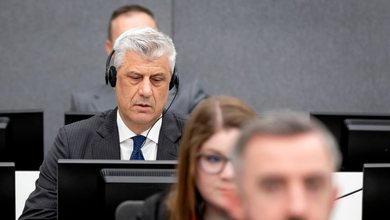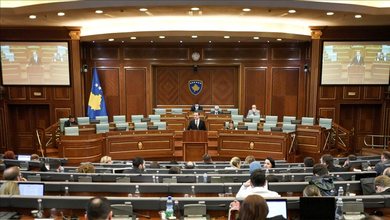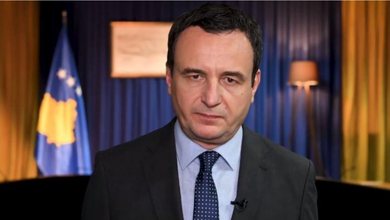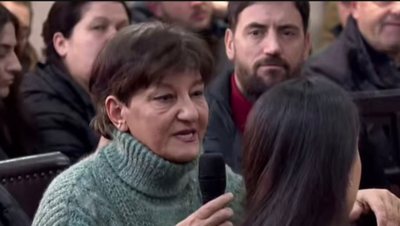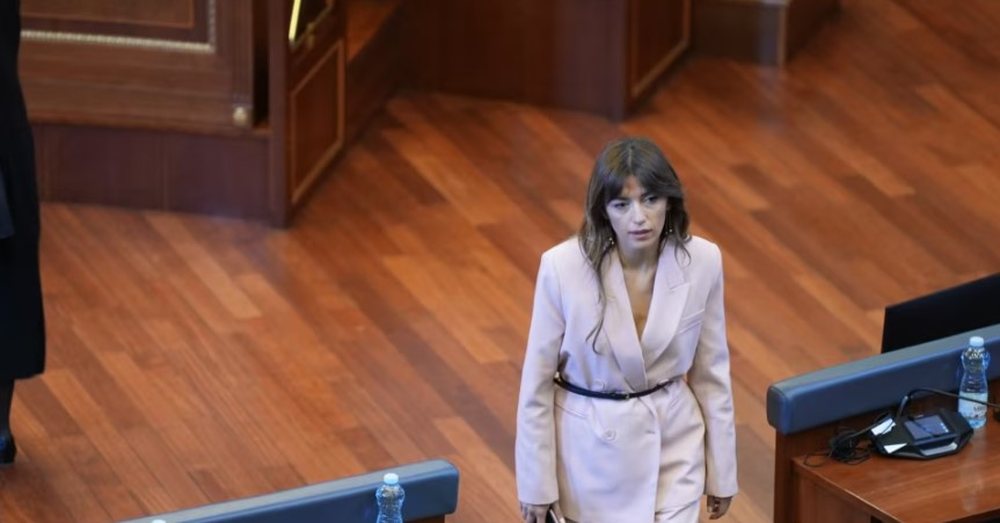
This step comes after the publication of the Constitutional Court's decision, which ordered the election of the speaker of parliament within 30 days through open voting, determining that the candidate can only be voted on three times and that all deputies must participate in the vote.
However, the chances of success seem slim. The Vetëvendosje Movement is once again insisting on Albulena Haxhiu's name, while the opposition so far shows no willingness to compromise. Constitutional experts warn that failure could lead the country into a new institutional situation.
Haxhiu again
In the continuation of the session on August 20, the Vetëvendosje Movement (LVV) will once again nominate Albulena Haxhiu for Speaker of the Kosovo Assembly, the party's MP, Arbër Rexhaj, confirms to Radio Free Europe.
“If Ms. Haxhiu is not elected within three terms, of course we will discuss the next course of action within the parliamentary group,” he says.
Rexhaj recalls that the acting prime minister and leader of the LVV, Albin Kurti, has promised to respect the Constitutional Court’s decision, but expresses concern about the limitation it has imposed: a candidate for Speaker of the Assembly can only be nominated three times.
According to Rexhaj, this decision shifts the power of the proposal: if the LVV fails to elect the chairman within the 30-day deadline, the right to propose passes to the other party.
He warns that this could “distort the political will of the citizens of Kosovo, who in the last elections voted for the LVV with 42.2% of the vote.”
What are the positions of the opposition parties in the previous legislature?
Unchanged. The Democratic Party of Kosovo says they will not vote for Haxhiu.
MP Blerta Deliu-Kodra explains that PDK stands by its position of not supporting any of the names that were part of the previous Government, led by Albin Kurti.
"There are over 40 [LVV] MPs who have the potential to pave the way for unblocking. Also, AAK has proposed two names [Saranda Bogujevci and Shqipe Selimi from LVV] and they would receive the votes of MPs," says Deliu-Kodra, adding that the compromise is now expected from the Vetevendosje Movement.
The Democratic League of Kosovo also remains against any LVV candidate for Speaker of the Assembly. The party's deputy leader, Lutfi Haziri, says that LDK deputies will participate in the vote, as required by the Constitutional Court's decision, but that their vote will be against the LVV candidate.
"Cooperation, in our case, should mean political agreement. If a broad consensus is not reached on a process, on a proper name, then cooperation extends to political agreement. This belongs to the first party [LVV]," Haziri tells Radio Free Europe.
Similarly, the Alliance for the Future of Kosovo will not support Haxhiu.
MP Time Kadrijaj explains that after Haxhiu's three proposals, every vote from AAK will depend on the next candidate that LVV may propose.
"If any of the names we suggested [Saranda Bogujevci and Shqipe Selimi] are given or if it is someone who really deserves the vote, then we will vote for them. Otherwise, the position will be the same," Kadrijaj tells Radio Free Europe.
She adds that the Constitutional Court's decision obliges MPs to participate in the vote, but emphasizes that each of them has the right to vote according to their own beliefs.
According to her, there is no possibility of a political agreement between AAK and LVV as a condition for voting for the proposed candidates.
What if the 30-day deadline is not respected?
Zahir Çerkini, professor of Constitutional Law at the "Isa Boletini" University in Mitrovica, told Radio Free Europe on August 18 that if the Assembly fails to elect the speaker and presidency within the stipulated deadline, a constitutional situation will be created that requires institutional clarification.
Similarly, Vullnet Bugaqku from the Democratic Institute of Kosovo says that if the 30-day deadline is not met, the Constitutional Court is obliged to clarify the legal consequences.
These, he says, could include taking away the mandates of current MPs and replacing them with subsequent candidates on the parliamentary party lists.
He does not rule out the possibility that, as a result of the failure to reconstitute the Assembly within 30 days, the Constitutional Court will review and clarify the possibility of organizing new elections.
Bugqaku says that the main responsibility initially falls on the winning party, the Vetëvendosje Movement, which must attempt to reach a compromise with other parties to propose a candidate for speaker of parliament who receives at least 61 votes.
If Haxhiu's name fails to obtain the necessary majority and LVV proposes another candidate, the responsibility falls on all MPs, he says.
"The court is seeking a kind of double responsibility and a kind of double balancing of the constitution of the Assembly within the 30-day deadline, emphasizing that it is the obligation of all deputies to vote to elect the Speaker of the Assembly," Bugaqku tells Radio Free Europe.
He adds that LVV's concerns that the right to propose could be passed to a second party are well-founded.
"This right can only change in one situation - if the largest parliamentary group misuses the right to propose a candidate for the Speaker of the Assembly, as an opportunity to block the constitution of the Assembly," says Bugaqku, emphasizing that other parties must also be careful, as rejecting candidacies without reason makes them responsible for disrespecting the Constitutional Court's decision.
"Non-implementation of a Constitutional Court judgment is equivalent to non-implementation of the Constitution," claims Gëzim Shala from the Kosovo Justice Institute.
In a statement issued on August 19, the Presidency of Kosovo said that the swift constitution of the legislative body "is a state emergency." /REL/


